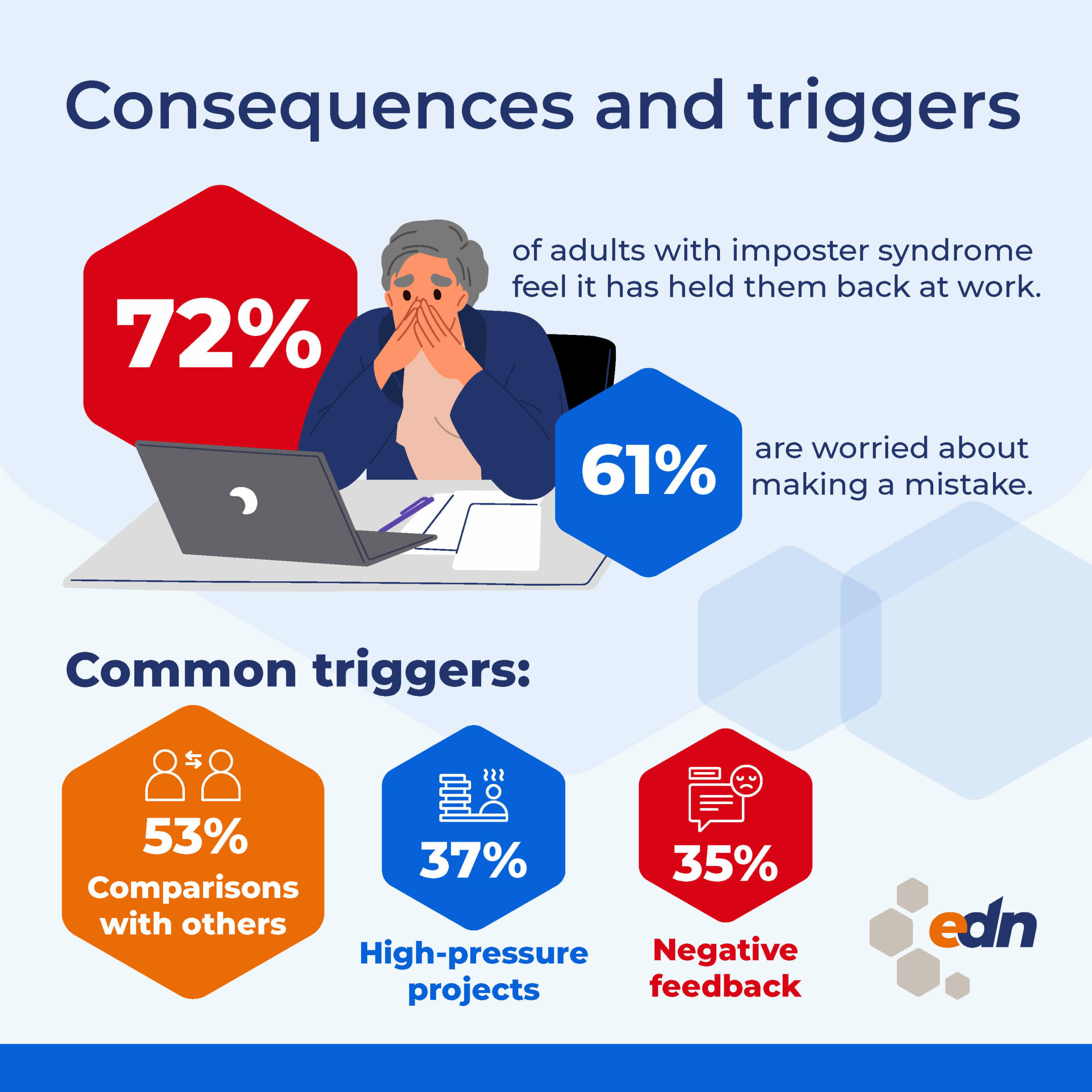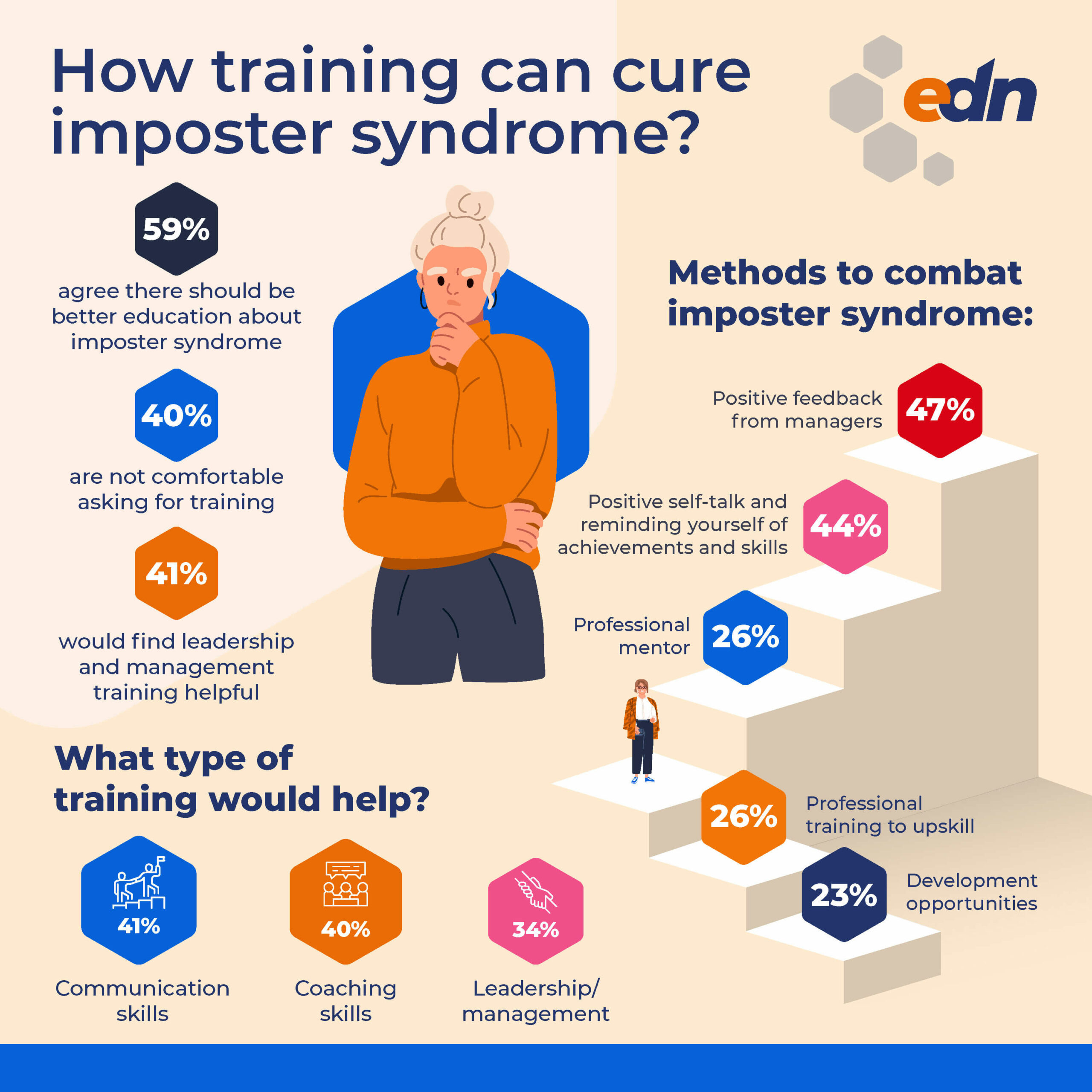Prescribing Success
How to identify and support people suffering with imposter syndrome, to create a more confident and productive team.

Imposter syndrome, the experience of feeling like a fraud, can have a major impact on the success and confidence of your employees.
Research has shown almost half (43%) of Britons are suffering with a telltale sign of imposter syndrome – whether that’s negative self-talk, doubting their abilities or having unreasonably high expectations of themselves.
While it can strike at any time, imposter syndrome is particularly prevalent among people who are being pushed out of their comfort zone or starting a new position.
We recently conducted research that surveyed 5,000 individuals from different demographic groups and found that while imposter syndrome is common, some groups suffer more than others. Our research uncovered:

EDN has partnered with leading behavioural psychologist, Jo Hemmings, to offer top tips for spotting people suffering with imposter syndrome – and what to do about it.
Key signs of imposter syndrome:
- Self-deprecation and self-doubt
- Overworking and perfectionism
- Reluctance to take on new challenges
- Fear of evaluation
- Avoiding seeking guidance and help


Tackling imposter syndrome

To help businesses navigate through difficult situations, including supporting colleagues with imposter syndrome, we have recently launched an inclusive leadership apprenticeship. The new programme aims to empower leaders to develop strategies for creating a diverse, inclusive and modern workplace culture.
The development of these programmes follows recent research from EDN that found 83.3% of employees are more attracted to working at an organisation with a progressive company culture. When asked what more their workplace could offer to enhance its benefits package, responses from employees included training in areas such as diversity and inclusion of ethnic minorities within the workplace (19.8%), LGBTQ+ inclusion (17.6%) and understanding the impact of menopause (19.4%).
These new courses will give leaders throughout all levels of a business the skills and strategies to tackle the challenges of their teams and understand the importance of inclusivity and dealing with difficult situations they may have not had experience in before.
If these issues sound familiar, the good news is help is at hand. There are several ways to support and enhance the performance of your team – including implementing an apprenticeship programme targeting managers and leaders.
- Provide professional development opportunities: Investing in their growth can increase their confidence and competence.
- Lead from the top: Empower managers with effective training in softer skills such as mindfulness and coaching, to help them build and lead their teams effectively
- Foster a culture of open communication: Encourage open and honest communication within the workplace, where employees feel comfortable discussing their feelings and asking for help.
- Provide regular feedback and recognition: Set realistic expectations and offer mentorship and coaching and create a supportive team environment.
- Recognise imposter syndrome as a legitimate concern: Educate managers and HR teams about imposter syndrome and its effects on employees.
If you want to find out who within your team could be most vulnerable to imposter syndrome then stay tuned, as EDN explores this topic further throughout the year.
Click here for more information on the EDN courses, designed to support your business with high-quality management and leadership training.
